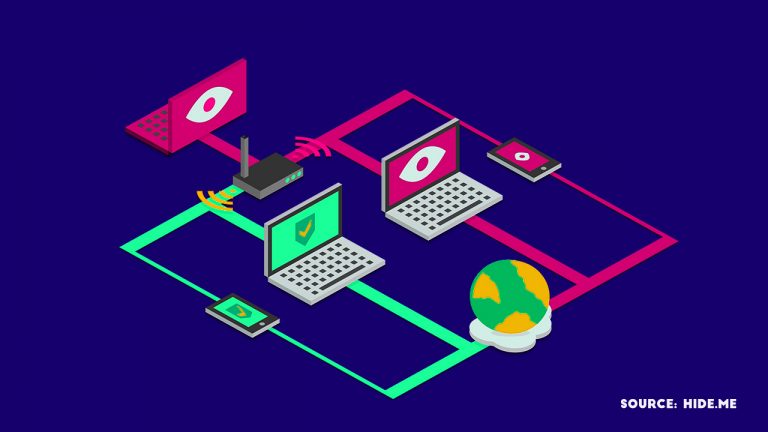Virtual private networks (VPNs) are becoming increasingly popular among users as a means of ensuring their online safety in the wake of an increase in cyberattacks on well-known corporations and growing privacy concerns.
By hiding IP addresses, encrypting data transfers over networks, and preventing other parties from monitoring user behavior, a VPN safeguards the online traffic of its users. Many VPNs also offer high-speed video streaming so users can access content that is blocked or unavailable in their area.
There are other VPN products available, but today we’ll be concentrating on Private Internet Access.
Contents
What is Private Internet Access?
Andrew Lee founded PIA in 2010 under the name Crossrider. In 2019, the UK-based company Kape Technologies purchased PIA. The business runs servers in 78 different nations and supports PPTP, L2TP/IPsec, SOCKS5, and OpenVPN, among other protocols. Of course, the software works with almost all hardware and operating systems. It is also one of the most reasonably priced alternatives, going for as little as $2.19 monthly.
History of Private Internet Access
Under the leadership of the parent company London Trust Media and businessman Andrew Lee, Private Internet Access was established in 2010. Lee’s desire to make privacy more widely accepted led to the creation of the company. During its acquisition by Kape Technologies, PIA was required to reassure its customers that privacy and security would continue to be their top priorities as they operated under Kape’s management.
The organization cannot record your data because Private Internet Access VPN operates under a strict no-usage-logs policy. Additionally, preventing data exposure are features like ad filtering and kill switch protection that blocks harmful websites.
Ten devices are supported by default, and you can add more for a fee. And the support staff at Private Internet Access VPN is on call around the clock if you need assistance.
What are the features of Private Internet Access?
1. Flexible Encryption
Users are typically required to run at predetermined encryption rates by VPN service providers. Although it may be an idiot-proof way to keep people safe, this strategy severely limits your options for customization. Your data will be more secure the greater the encryption rate employed. Unfortunately, this safety could potentially come at the expense of speed. While those of you who have current, powerful equipment will generally be alright, the additional overhead can occasionally be disastrous for older equipment.
OpenVPN, the impenetrable AES-256 cipher, and Perfect Forward Secrecy are just a few of the top encryption algorithms used by PIA VPN. Indeed, it ranks among the most private and secure VPN services available.
2. No Log Policy
Private Internet Access is renowned for its concern for privacy, which is evident in every action taken by the service. PIA upholds a rigid no-log policy. Users’ experiences are made safer and more anonymous, which is what PIA values most highly. User browsing data is never kept on hard drives; instead, it is kept on a unique null device. Because it is a virtual device, any data sent through it will automatically be treated as if it didn’t exist. Once the data has been written to the null device, retrieval is no longer possible. In this way, PIA can support its no-log policy.
3. Kill Switch
In the dashboard’s settings, Private Internet Access contains a kill switch that you may access. When your VPN disconnects for a minute, an enabled kill switch ensures you are not unintentionally disclosing any information. Additionally, this VPN employs a novel technique for blocking websites utilized by trackers, malware, and advertisements. This feature, referred to as PIA MACE, is located in the settings section next to the kill switch.
4. Servers And Location
Currently, Private Internet Access has over 33,000 servers spread throughout 78 nations. This is a sufficient number of servers spread across many locations for the majority of users. You can visit their website for the most recent updates since Private Internet Access VPN says they are constantly working to increase their server network.
5. Speed
One of today’s fastest VPNs is provided by Private Internet Access. You get a quick and stable connection thanks to the quick OpenVPN and the performance-optimized WireGuard protocol, which is quicker and more dependable than other protocols.
A global network of next-generation VPN servers operated by PIA is also available, and these servers are optimized to deliver connection speeds of up to 10 Gbps. You can browse and watch as much content as you want at top speed because there are no bandwidth restrictions, PIA has over 33,000 servers in 78 locations, and split tunneling is available.
Conclusion
Only a solid VPN is provided by PIA. There are some excellent privacy features; however, obfuscated server support is also limited. Although inconsistent, speeds are generally acceptable for a VPN. For the majority of customers who won’t utilize a connection other than the default, speed decreases should be modest. Ultimately, with so many VPN choices available, it’s difficult to suggest PIA. Sometimes you require more than simply private internet access.

